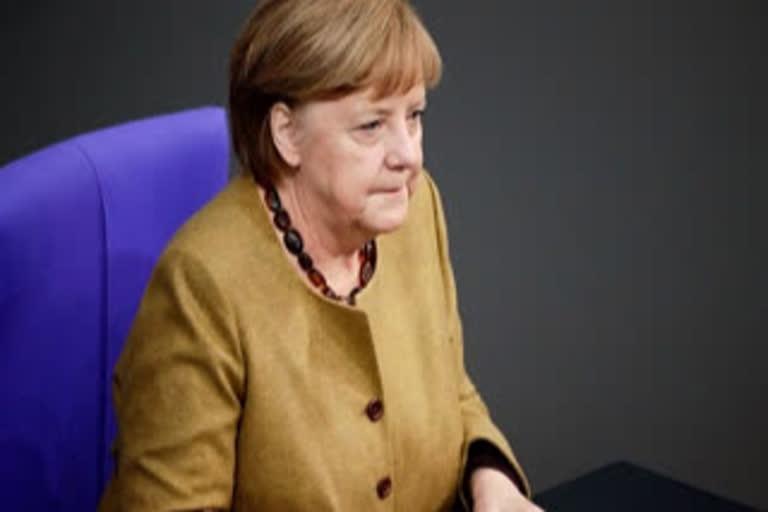Berlin: Outgoing Chancellor Angela Merkel painted a rosy picture of her government's record on Tuesday and assailed the possibility of a future left-wing administration, seeking to boost her struggling party's candidate as she addressed what is expected to be the German parliament's last session before the Sept. 26 election.
Merkel also rebuked her deputy, who is a rival party's candidate to succeed her and currently leading polls, over a comment in which he jokingly described people who have been vaccinated against COVID-19 as “guinea pigs.”
An unusually partisan speech to lawmakers by Merkel, who has largely stayed out of the campaign on the grounds that outgoing leaders should hold back, appeared to reflect mounting concern over her centre-right Union bloc's prospects under would-be successor Armin Laschet.
Recent polls have shown the Union slipping into second place, while the center-left Social Democrats have taken the lead thanks to the relative popularity of Vice Chancellor Olaf Scholz, also Germany's finance minister. They put the environmentalist Greens, whose co-leader Annalena Baerbock is making the party's first run for chancellor, in third place.
They suggest a variety of possible governing coalitions. As the Union's poll ratings have declined, its leaders have issued increasingly frequent warnings that Scholz and the Greens would bring the hard-left opposition Left Party, which dislikes NATO and opposes German military missions abroad, into government. Scholz hasn't ruled that out, but it's clearly not his favored option.
Merkel told lawmakers that the upcoming vote is “a trendsetting election for our country in the most difficult of times.”
Voters can choose between a government in which the Social Democrats and Greens “accept the support of the Left Party, at least don't rule it out, or a German government ... led by Armin Laschet as chancellor,” she said. “His government will stand for stability, reliably and moderation, and that is exactly what Germany needs.”
Merkel set out what she sees as the achievements of her final term, including progress on legislation to fight climate change.
She also argued that Germany has made “significant progress” on digitization and infrastructure, although she conceded that “there are still small difficulties in many places.” Critics say Germany far more to do. Baerbock said “we have a gigantic problem, that we don't just lack internet in rural regions but in many, many areas of our country.”
Read: Merkel steps down with legacy dominated by tackling crises
Merkel said that years of efforts to support research have borne fruit, for example in the development in Germany of one of the major vaccines against COVID-19. And she rebuked Scholz directly over comments aimed at restoring momentum to the country's vaccination campaign.
